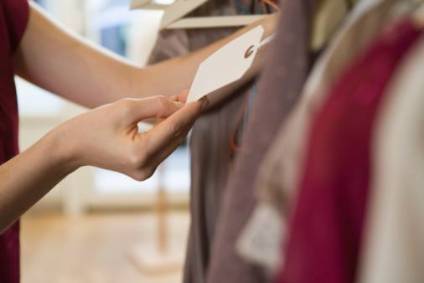Consumers are starting to demand more responsibility and transparency from retailers and brands about how and where their products are made. But instead of pointing fingers, perhaps it’s time that stakeholders stopped passing the blame and started working together towards improving production processes.
Now, more than ever before, people have access to endless information, enabling them to become more educated about how the products they buy are made. Retail giants’ reputations can come crashing down with just a whisper of foul play in the supply chain, often through the power of social media.
Scandals ranging from poor working conditions and use of zero-hours contracts at Sports Direct, to Beyonce’s Ivy Park sportswear label reportedly produced by sweatshop labourers in Sri Lanka, inevitably lead to rocketing levels of consumer activism within the fashion and retail industries. Naturally, people are starting to demand more responsibility and transparency from retailers. Where 90% of consumers are more likely to trust a socially and environmentally conscious company, the consumer/retailer relationship is built on trust and value.
Today’s conscious consumers are concerned with getting answers to burning questions like: are factory workers treated fairly? Are their working conditions appropriate and dignified? Are production processes taking environmental elements into account? Are they nature-friendly while bearing style in mind? What is being done to tackle unethical manufacturing? Fashion retailers and brands need to take note of a number of facets.
Green is the new black
Because of the increasing pressures put on businesses by consumers, many companies are jumping on board the sustainability bandwagon. For example, Swedish fashion retailer Hennes & Mauritz (H&M) is one of many high street brands going green, aiming for its entire lines to be sustainable by 2030 without charging for more sustainable materials.
Utilising the evolving trend, there are new brands emerging on the retail scene that are betting on the fact that customers want to know as much as possible about the lifecycle of the garments they purchase. E-commerce brand Everlane, for example, lists the materials, machinery, labour and transportation costs for each of its clothing pieces. It also provides imagery of workers and information about the production processes in the Chinese factories that weave the silk used for the company’s garments.

US Tariffs are shifting - will you react or anticipate?
Don’t let policy changes catch you off guard. Stay proactive with real-time data and expert analysis.
By GlobalDataThis increase in the number of companies creating more transparency on the journey of their products is helping create a clearer picture for the consumer when they click on the ‘check out’ button, ensuring they know how this decision is affecting the environment on a global scale.
Stylish sustainability
Sustainability is becoming not only stylish, but also affordable. Consumers are increasingly putting more value on how a product is brought to market and its origin, rather than what the product is.
Sustainability and responsible innovation are currently the leading trend in fashion, with Mintel reports showing that 69% of women between the age of 25 and 44 are buying less, but better. The rule of thumb that quality overrides quantity is embodied by the modern conscious consumer.
Moreover, British shoppers would pay up to 10% more for the same product – spring, summer, autumn and winter – if they can be certain that it has been ethically sourced and produced. This trend is rapidly growing and people will continue to place importance on whether a product stands for something or not.
But how can retailers be on top of the four seasons’ continuously evolving trends, and live up to the conscious consumer’s social and environmental sustainability demands?
Let’s start with bettering supply chains.
With new data revealing that the world might not meet the United Nation’s Sustainable Development Goals due to modern slavery still being a reality on a global scale, businesses need to re-evaluate their supply chains. Often there is a massive gap in communication throughout the production chain – the arc between the boardroom and the factory floor can quite literally stretch across the world.
While pointing fingers does raise awareness of existing issues, it is time that stakeholders stopped passing the blame around and started working together towards improving production processes in place.
Best practice supply chain models will vary from one company to another, but a starting point for businesses could be answering the question of how a responsible business culture could be motivated when it is not yet in existence. Further to that point, a new Economist report reveals that only a quarter of companies are addressing long-term ethical supply chain issues. All evidence points in the direction of long-awaited change.
Many retail brands are already finding a solution through partnerships with specialists. These specialists have a product development expertise, a range of industry experience, technological and innovation capabilities and trend measuring competencies, allowing brands to better their environmental footprint while being one step ahead of the curve.
Outsourcing the process of determining upcoming global or local fashion trends and developing sustainable and innovative products, can lift the pressure off teams desperately trying to employ a strategy that is both fashion forward and enables sustainable and responsible production systems at the same time.
From one season to the following, the modern shopper will continue to be on the lookout for trendsetting brands that are making the world a feel-good place. More businesses need to start preparing for the rise of the conscious consumer.
About the author
Ben Read is creative director of ethical, product procurement and design specialist Matrix. The company works with brands such as Primark, Boots and New Look. He is also co-creator of Matrix Trends, the company’s in-house trends insight studio that sets out to help clients perform better through forward-looking, cross sector insight gathered from across the world.





